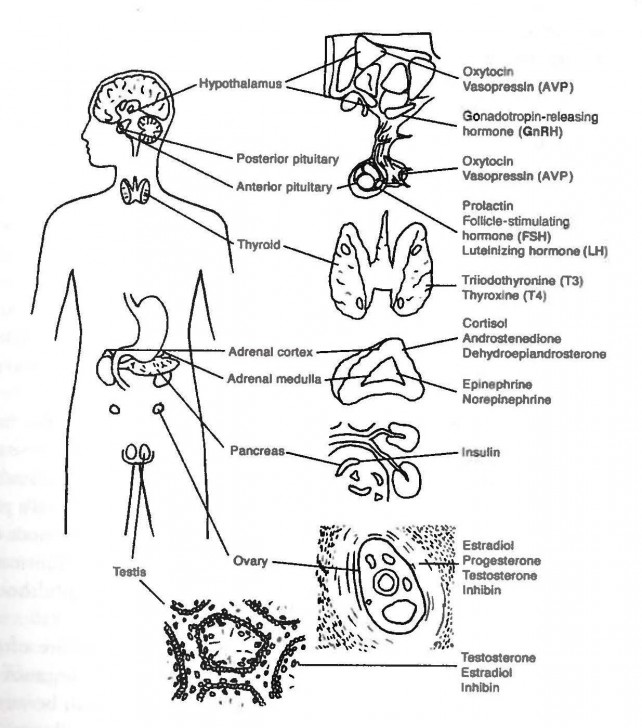Despite being of utmost importance most people don’t know much about the endocrine system and glands, but this part of the body controls everything in the body that proceeds slowly such as growth of the cells, versus faster processes in the body such as breathing, heartbeat and movement. The nervous system controls the faster processes but it works in harmony with the endocrine system so that the body can function in a healthy way.
The endocrine system is made up of hormones and glands. The hormones act as chemical messengers, taking messages to various cells of the body. The glands of the endocrine system include the adrenal, hypothalamus, thyroid, reproductive glands, pancreas, and pituitary. Glands are cells that secrete these chemicals or hormones and together, the endocrine system helps to control the body’s metabolism, sexual function, function of the tissues, moods, and development, among other processes.
Hypothalamus
The hypothalamus links the endocrine with the nervous system and cells in this gland help to control and direct the pituitary gland, and this in turn controls the hormones created by the pituitary. The pituitary itself is about the size of a pea but is often considered the most important part of the entire endocrine system. This gland makes the hormones that are received by, and which then control, many other glands in the body.
The inner lobe of the pituitary produces what is called the growth hormones, and these control bone and body tissue growth and development. Diseases and defects of the pituitary gland can cause stunted growth or excessive growth spurts.
Pituitary gland
Endorphins are also produced by the pituitary gland, and these chemicals make a person feel relaxed and less responsive to pain. The pituitary also sends hormones to the sex organs so they in turn produce hormones that are related to sexual activity and development, and the menstrual cycle in women.
Thyroid
The thyroid looks something like a butterfly and is in front of the neck in the lower part, and the hormones this gland produces control the metabolism, which is the rate that cells burn the fuel produced by food for energy. The pituitary gland secretes what is called thyrotropin, which controls the amount of thyroid hormones in a person’s bloodstream. The thyroid gland also controls the rate at which children grow and develop.
Adrenal glands
Adrenal glands are located at the top of each kidney, and these produce hormones that control the balance of salt and water in the body, the response of the body to stress, sexual function and development of the sex glands, the immune system, and the body’s metabolism.
Pancreas
The pancreas produces and secretes digestive chemicals and hormones and is often associated with the digestive system, although it is part of the endocrine system. The pancreas produces insulin which helps to regulate sugar in the bloodstream, and a person with diabetes or other blood sugar and pancreas-related problems may need to inject insulin to keep their blood sugar levels healthy.
These are the major glands in the endocrine system that produce and control the hormones needed for healthy growth and overall function.
